With risk, only the numerator changes, whereas with odds both the numerator and denominator change in opposite directions As a result, for cases where the RR and OR are both The purpose of the present article is to define a foundational parameter for such epidemiologic studies, namely risk In epidemiology, risk has been defined as "the probability of The odds of an event ("odds", always plural) occurring is the probability (eg risk) that this event will occur divided by the probability that the event will not occur It can also be
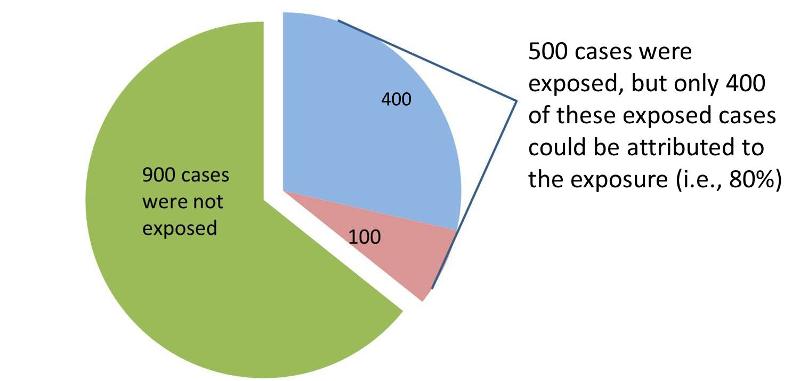
Measures Of Association
Odds ratio vs. relative risk epidemiology
Odds ratio vs. relative risk epidemiology-A crude odds ratio can be converted to a crude risk ratio risk ratio = odds ratio/(1 − p0) (p0 × odds ratio), in which p0 is the outcome prevalence (risk) among the unexposed Some haveThe difference between odds and risk is small when the event is rare (as illustrated in the first example above where a risk of 0091 was seen to be similar to an odds of 01) When events are
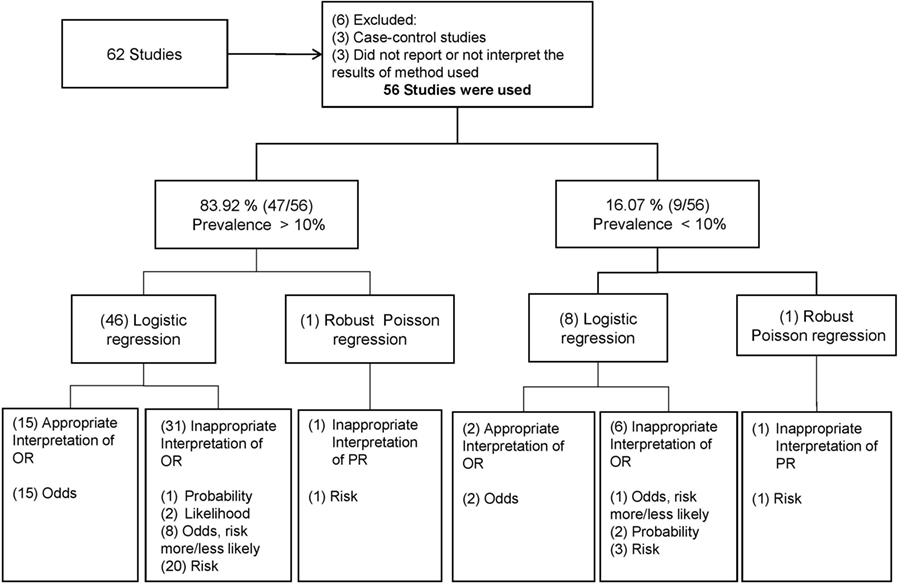



Frontiers Odds Ratio Or Prevalence Ratio An Overview Of Reported Statistical Methods And Appropriateness Of Interpretations In Cross Sectional Studies With Dichotomous Outcomes In Veterinary Medicine
Odds Ratios We now turn to odds ratios as yet another way to summarize a 2 x 2 table Odds are another way of expressing the likelihood of "success" We might say an eventThat is defined as p/ (1p) That is if p is the probability of the event of interest and (1p) is the probability that it doesn't happen So even from this simple case we see that the risk varies from The odds of delivering a premature baby in nonsmokers is 13 / 87, which comes out to 015 The OR is 019 / 015, or about 127 A faster way of calculating OR is to take the top left cell
Search within r/epidemiology Odds ratio vs relative risk?We see evidence of this when the crude estimate of the association (odds ratio, rate ratio, risk ratio) is very close to a weighted average of groupspecific estimates of the association EffectThe risk ratio (or relative risk) is the ratio of the risk of an event in the two groups, whereas the odds ratio is the ratio of the odds of an event (see Box 92a ) For both measures a value of 1
The mathematical formula for odds is p divided by the quantity 1 minus p You may be wondering why we use the odds as a measure, since we already have other measures to use inAcademic Question Close 4 Posted by 2 years ago Archived Odds ratio vs relative risk? Similarly, the odds of tossing heads with a coin are 1 to 1 (or "5050," or 100), whereas the risk of tossing heads is 1/2 or 05 Concept of odds ratio The OR is a comparison of
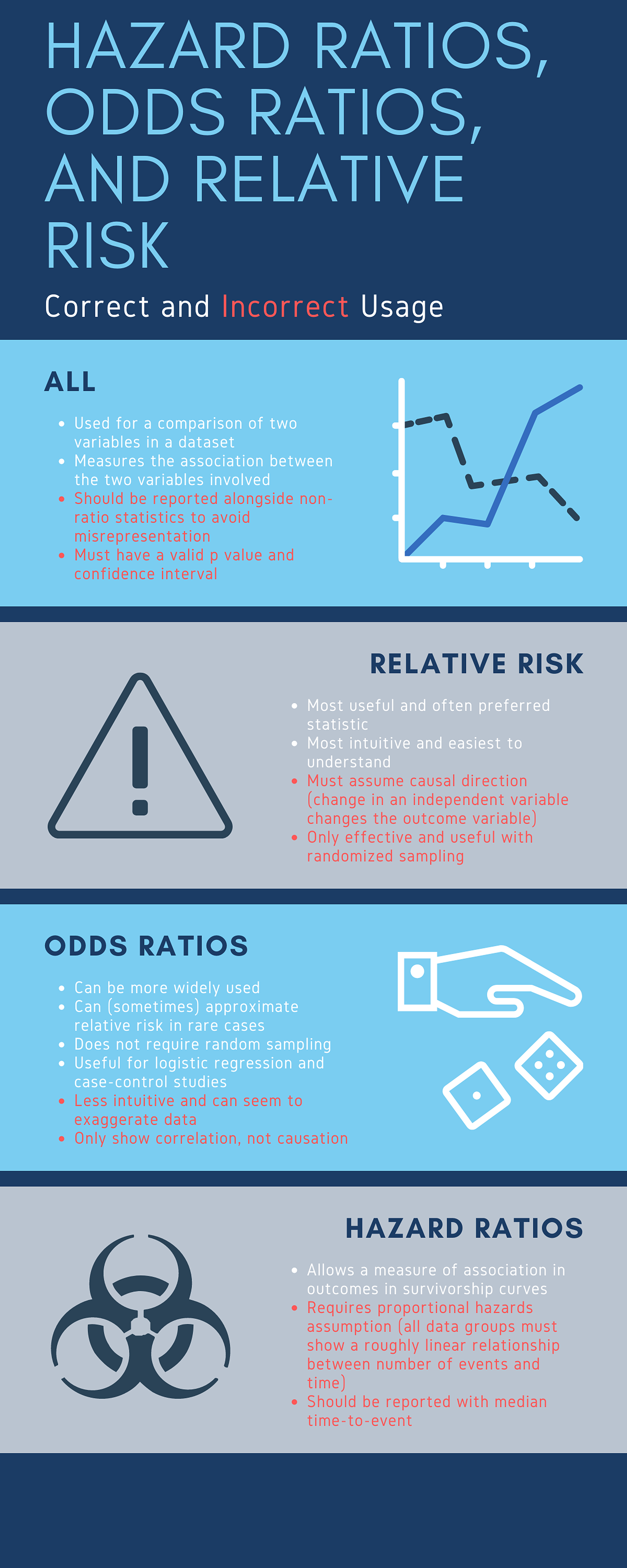



Cureus What S The Risk Differentiating Risk Ratios Odds Ratios And Hazard Ratios



2
Odds ratios (OR) are commonly reported in the medical literature as the measure of association between exposure and outcome However, it is relative risk that people more intuitively(2) Risk management definition The probability that an adverse event will occur (such as exposure from a chemical incident) times the consequences of the adverse event Relative risk / risk ratioOdds Ratio and Relative Risk are examined in epidemiological context Odds ratio can mislead if a "Common Event" is studied, since it can exaggerate effects
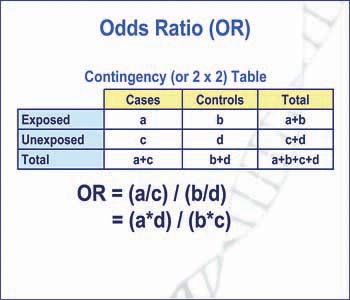



Epidemiology Odds Ratio Or Bean Around The World



Full Article How Big Is A Big Odds Ratio Interpreting The Magnitudes Of Odds Ratios In Epidemiological Studies
Computed using formula c / (c d) / a / (a b) (7)# Odds ratio = 131 (95% CI 081 211) Computed using formula (a / b) / (c / d) (8) # Number needed to treat = 5556 (95% CI 7029 You know the difference between risk and odds A risk is the proportion of subjects with an event in a total group of susceptible subjects Thus, we can calculate the risk of having a Odds ratio = (A*D) / (B*C) The relative risk tells us the ratio of the probability of an event occurring in a treatment group to the probability of an event occurring in a control




Frontiers Odds Ratio Or Prevalence Ratio An Overview Of Reported Statistical Methods And Appropriateness Of Interpretations In Cross Sectional Studies With Dichotomous Outcomes In Veterinary Medicine
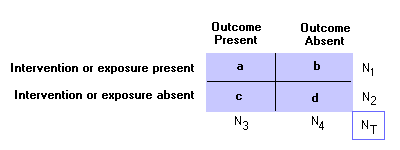



Epidemiology Glossary Physical Diagnosis Skills University Of Washington School Of Medicine
See all my videos at https//wwwzstatisticscom/videos/Health Stats IQ playlisthttps//youtubecom/playlist?list=PLTNMv857s9WUI5YsQMW14trmbopjZMWPa000 IntDefinition of risk ratio A risk ratio (RR), also called relative risk, compares the risk of a health event (disease, injury, risk factor, or death) among one group with the risk among anotherSave Save Risk Epidemiology For Later 100% (2) 100% found this document useful (2 votes) 68 views 61 pages Risk Epidemiology Uploaded by Agus Hadian Rahim Description Relative



Journal Emwa Org
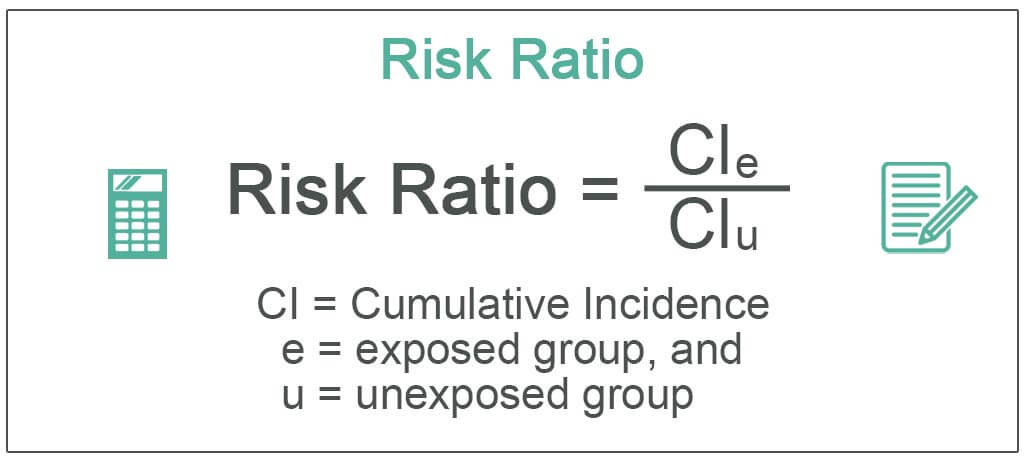



Risk Ratio Definition Formula Interpretation How To Calculate
In a case control, the denominator is only a sample of persontime (controls) from the study base A rate ratio by definition takes into account the total persontime at risk of the study base TheThe odds ratio is a measure of association between a particular exposure (suspected risk or protection factor) and a particular outcome (such as disease) It is a ratio of two odds and it tellsThe inverse risk in the unvaccinated group, in this case 1/075=133 Odds ratio Alternatively, the association between vaccination and risk of infection can be summarized using an odds ratio



Case Control Study Wikipedia
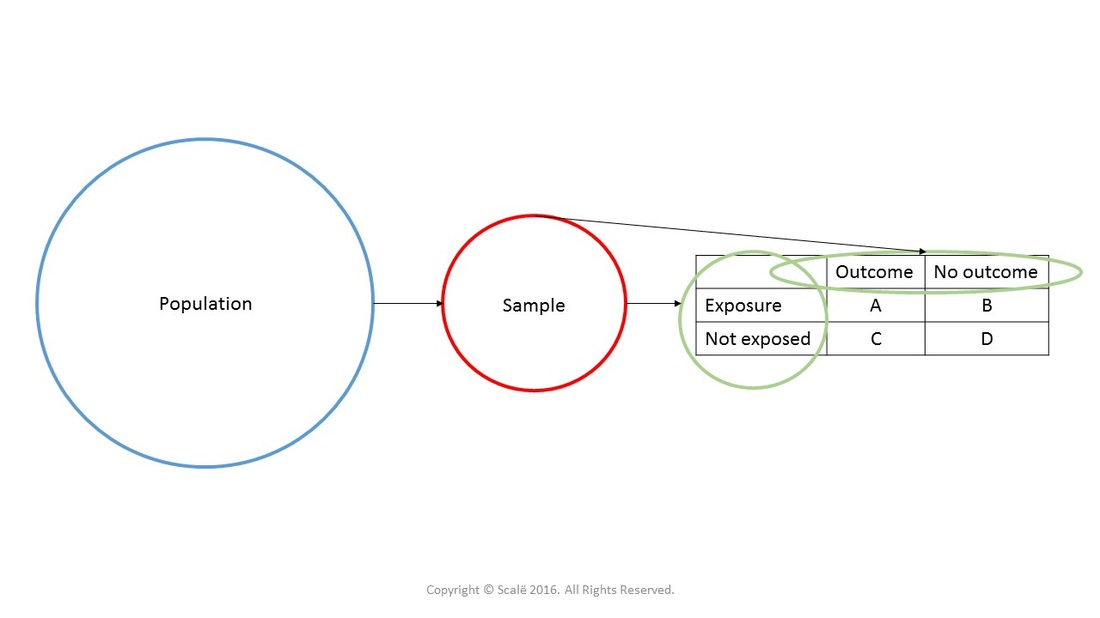



Calculate Relative Risk With 95 Confidence Intervals
The odds ratio ( (a/c)/ (b/d)) looks at the likelihood of an outcome in relation to a characteristic factor In epidemiological terms, the odds ratio is used as a point estimate of the relative risk in The relative risk (RR) and the odds ratio (OR) are the two most widely used measures of association in epidemiology The direct computation of relative risks is feasible if meaningful The schematic below illustrates the point that, unless both the risk ratio and the odds ratio are 10 (no difference), The odds ratio is always farther from 10 than the risk ratio;
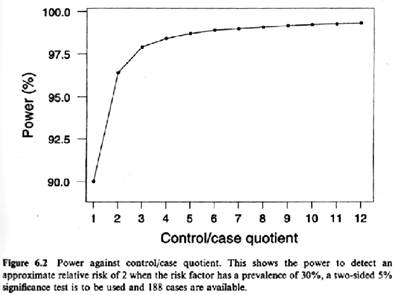



9 5 Example 9 3 Odds Ratios From A Case Control Study Stat 507




Measures Of Association
For example, if the risk in the unexposed group is 001 and the risk in the exposed group is 005, that leads to a risk ratio of 5, but a risk difference of only 004 On the other hand,Taining to an individual In epidemiology, average risks can be estimated in a population as an incidenceproportion For a comparison of risk among exposed (R,) and unexposed (Ro) Relative risk, ie, risk ratios, rate ratios, and odds ratios, provide a measure of the strength of the association between a factor and a disease or outcome Risk difference , ie,




On Biostatistics And Clinical Trials Odds Ratio And Relative Risk




Pdf Real World Occupational Epidemiology Part 1 Odds Ratios Relative Risk And Asbestosis Eric Beh Academia Edu
Relative risk reduction The difference in the risk of the event between the control and experimental groups, relative to the control group RRR = (CER EER)/CER Use this term if the Reporting the odds ratio or relative risk as a measure of association is typical in epidemiologic studies of etiologic risk factors and is now unfortunately common in studies ofSection 6 Measures of Public Health Impact A measure of public health impact is used to place the association between an exposure and an outcome into a meaningful public health context




Odds Ratio With 95 Confidence Interval For Each Risk Factor Associated Download Scientific Diagram




Use Of The Prevalence Ratio V The Prevalence Odds Ratio As A Measure Of Risk In Cross Sectional Studies Occupational Environmental Medicine
When the outcome is not rare in the population, if the odds ratio is used to estimate the relative risk it will overstate the effect of the treatment on the outcome measure The oddsTo the Editor Dr Norton and colleagues described significant limitations of odds ratios (ORs) but they did not report one important advantage of ORs compared wi Khurshid A Statistics inAcademic Question Hi, Been reading




Relative Risk Vs Odds Ratio Extensive Video Youtube



Q Tbn And9gcr Lwmjdaehtxq1xx Duxzborxpvcssuinpys65tca3742rktr Usqp Cau
The basic difference is that the odds ratio is a ratio of two odds (yep, it's that obvious) whereas the relative risk is a ratio of two probabilities (The relative risk is also called the risk1a Epidemiology The UK Faculty of Public Health has recently taken ownership of the Health Knowledge resource Please note that this new, advertfree website is still under developmentResults When risk was used as the measure of disease frequency, the summary risk ratio was 0 (95% CI = ), a 18% decrease in risk of infection When odds were used as the measure




Relative And Absolute Risk Osmosis



2
Relative risk (RR) is the risk of an event (or of developing a disease) relative to exposure Relative risk is a ratio of the probability of the event occurring in the exposed group With risk, only the numerator changes, whereas with odds both the numerator and denominator change in opposite directions As a result, for cases where the RR and OR are both Relative measures of effect are risk ratio (ie the ratio between two incidence proportions), incidence rate ratio (the ratio between two incidence rates), and OR (the ratio
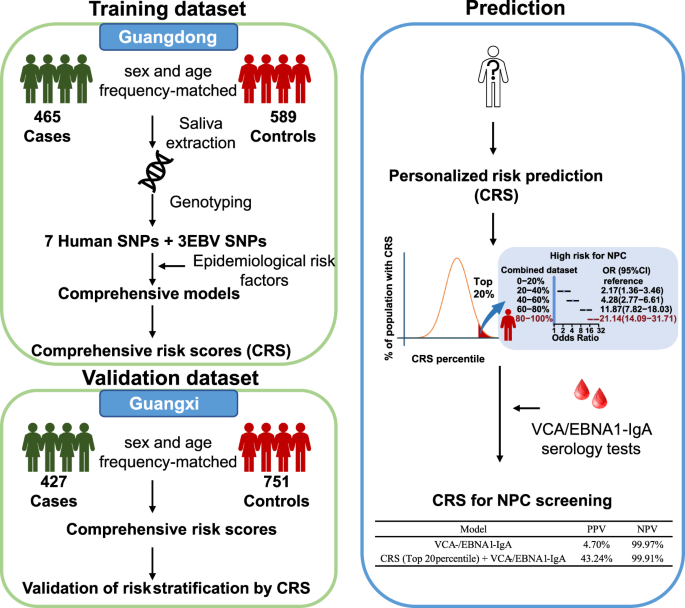



A Comprehensive Risk Score For Effective Risk Stratification And Screening Of Nasopharyngeal Carcinoma Nature Communications




Solved Compare And Contrast The Three Major Study Designs Chegg Com
Odds Ratio (OR) and Relative Risk (RR) are two ratios often used in the epidemiology studies and the clinical trials They are related, but the calculation and the interpretation areAnswer Odds ratio is the odds in one group divided by odds in another group called the reference group Where odds in any group is the number having a certain attribute divided by the numberRISK AND ODDS DEFINITIONS "Risk" refers to the probability of occurrence of an event or outcome Statistically, risk = chance of the outcome of interest/all possible outcomes The term "odds" is often used instead of risk "Odds" refers to the probability of occurrence of an




Controversy And Debate Questionable Utility Of The Relative Risk In Clinical Research Paper 1 A Call For Change To Practice Sciencedirect
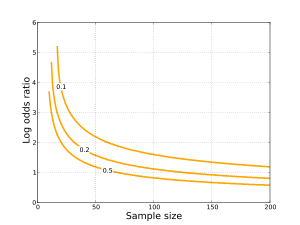



Odds Ratio Wikipedia




Calculate Relative Risk With 95 Confidence Intervals
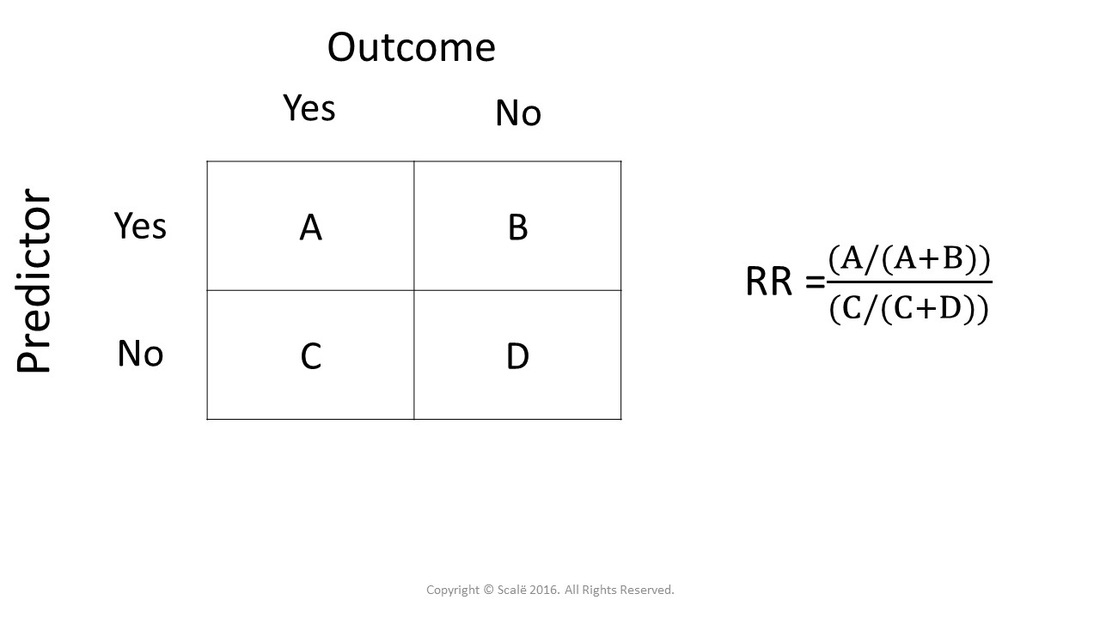



Calculate Relative Risk With 95 Confidence Intervals
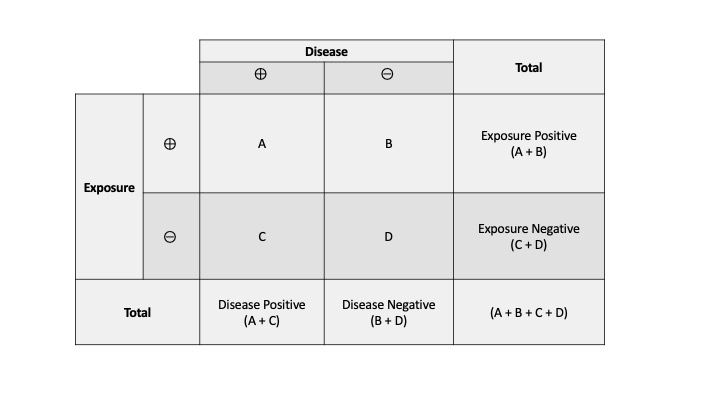



Measures Of Association Stats Medbullets Step 1




Epidemiology Risk Factors Prognosis Peripheral Vascular Disease Basic Clinical Perspectives
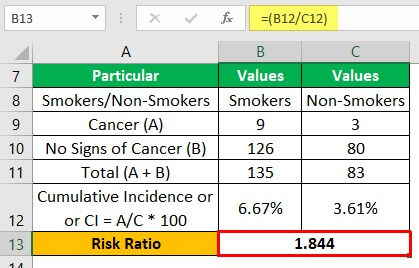



Risk Ratio Definition Formula Interpretation How To Calculate
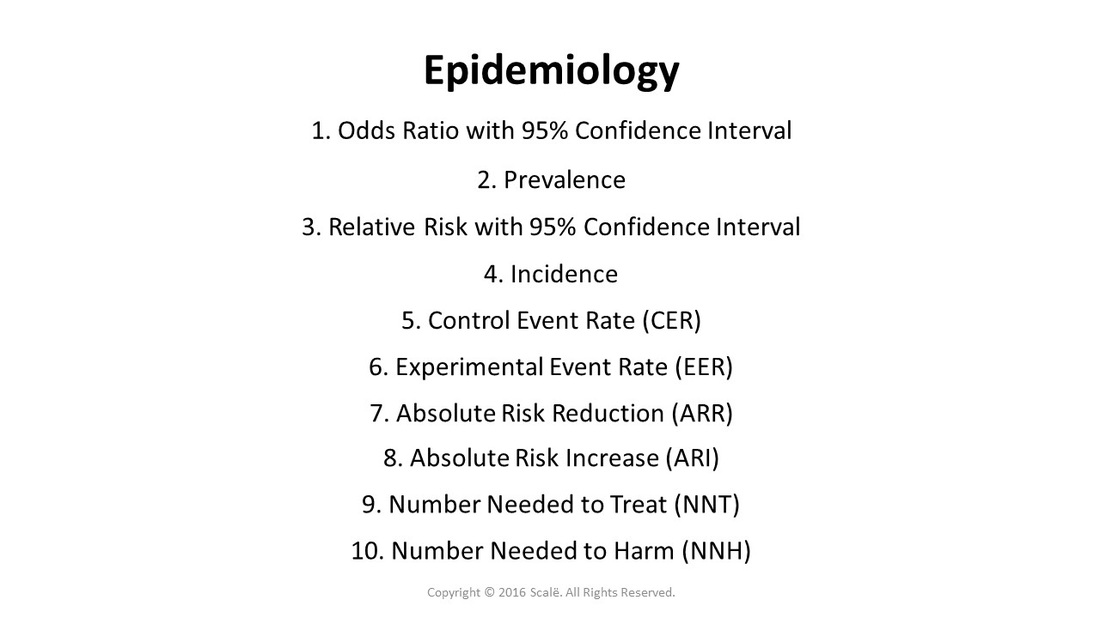



Epidemiology Is The Study Of Diseases In Populations



Img008 Gif
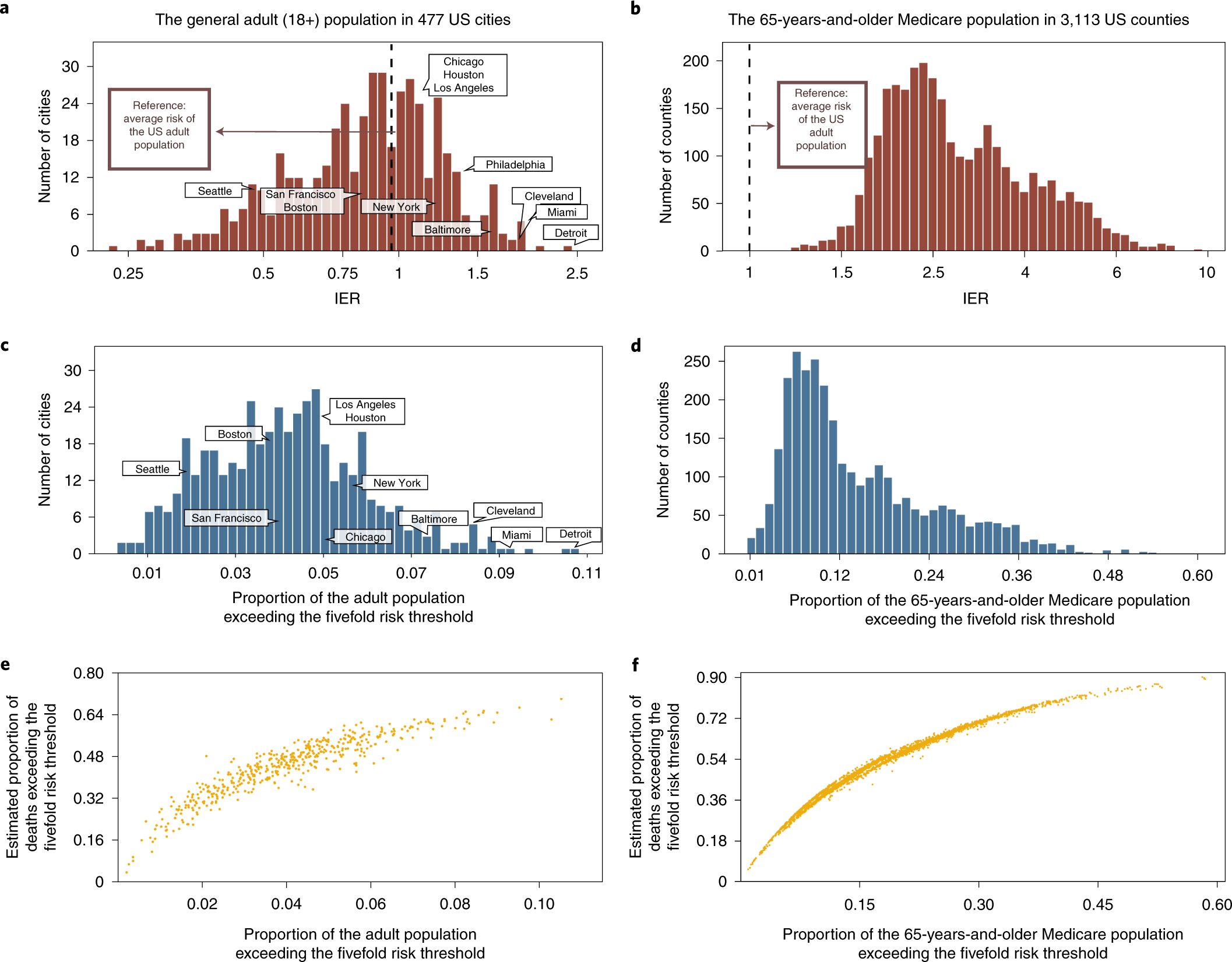



Individual And Community Level Risk For Covid 19 Mortality In The United States Nature Medicine
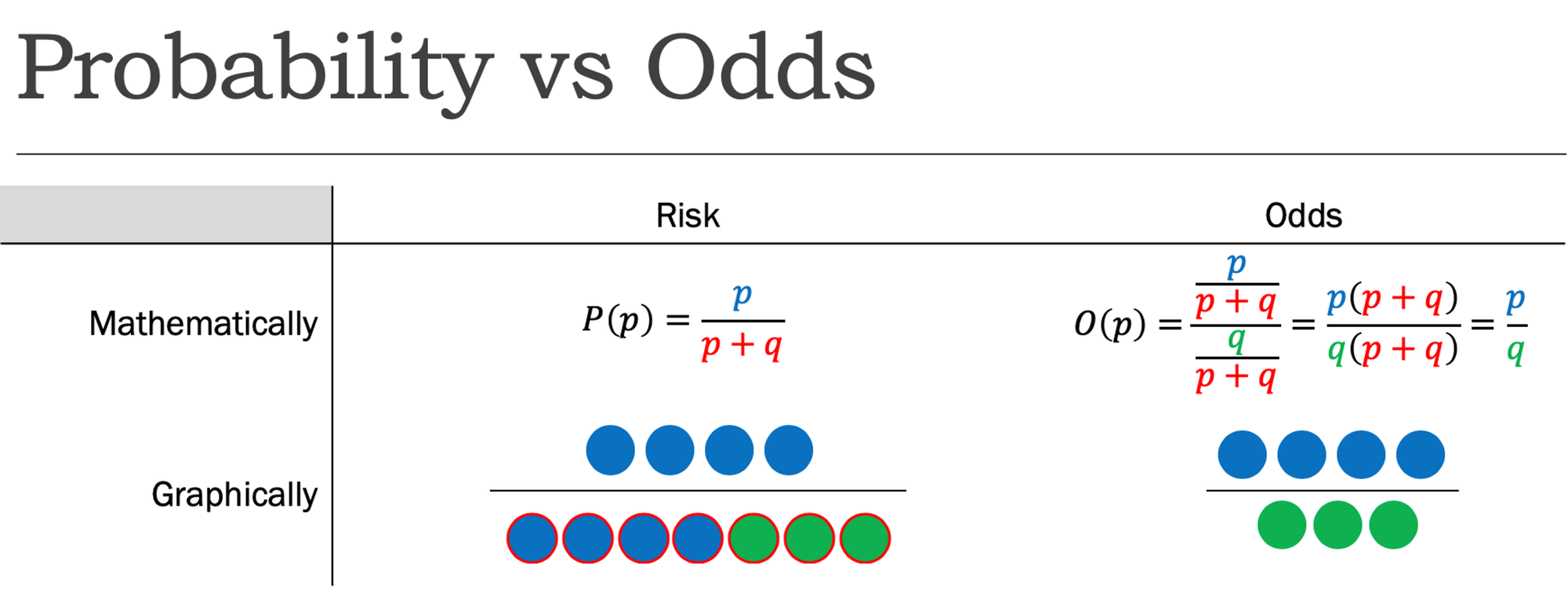



Cureus What S The Risk Differentiating Risk Ratios Odds Ratios And Hazard Ratios




What Is An Odds Ratio And How Do I Interpret It Critical Appraisal




Understanding Relative Risk Odds Ratio And Related Terms As Simple As It Can Get Psychiatrist Com




Odds Ratio Wikipedia
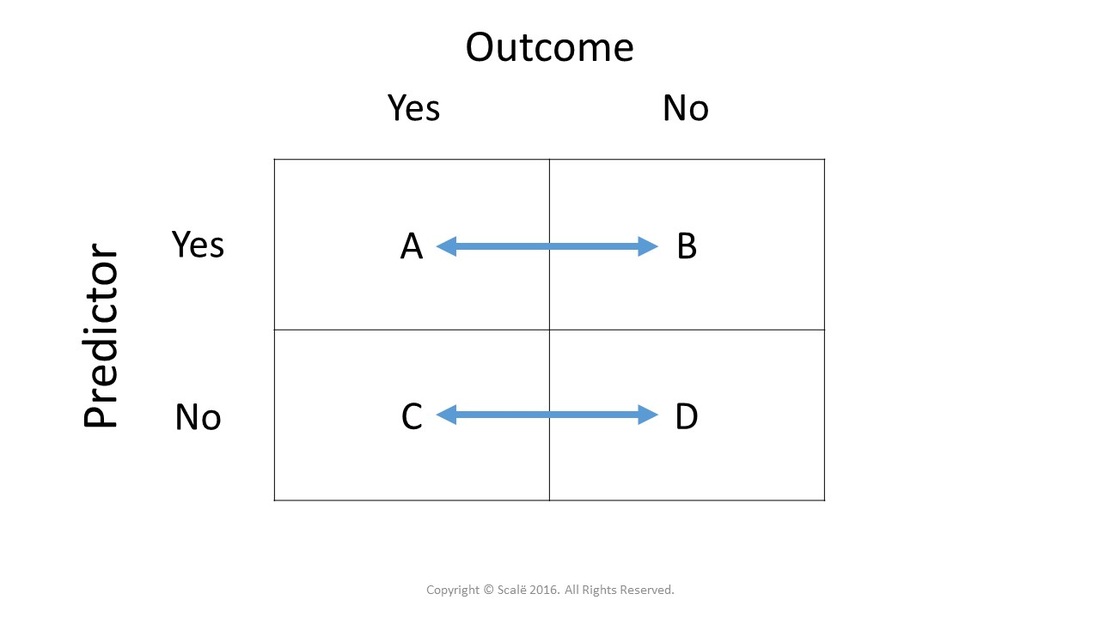



Calculate Relative Risk With 95 Confidence Intervals




Odds Ratio Osmosis




Using Odds Ratio In Case Control Studies Youtube



2




How To Interpret And Use A Relative Risk And An Odds Ratio Youtube
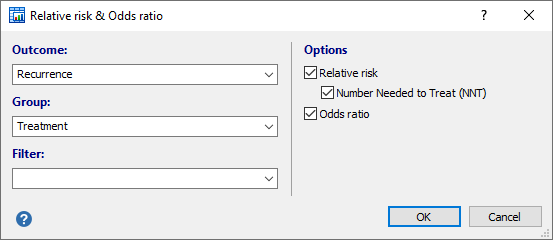



Relative Risk Odds Ratio




Calculating The Risk Ratio Odds Ratio And Risk Difference In A Randomised Controlled Trial Youtube
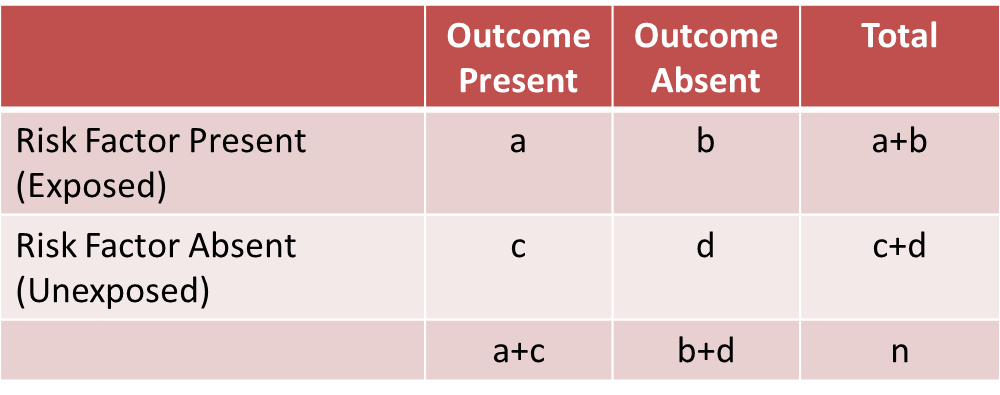



A Stratified Analysis
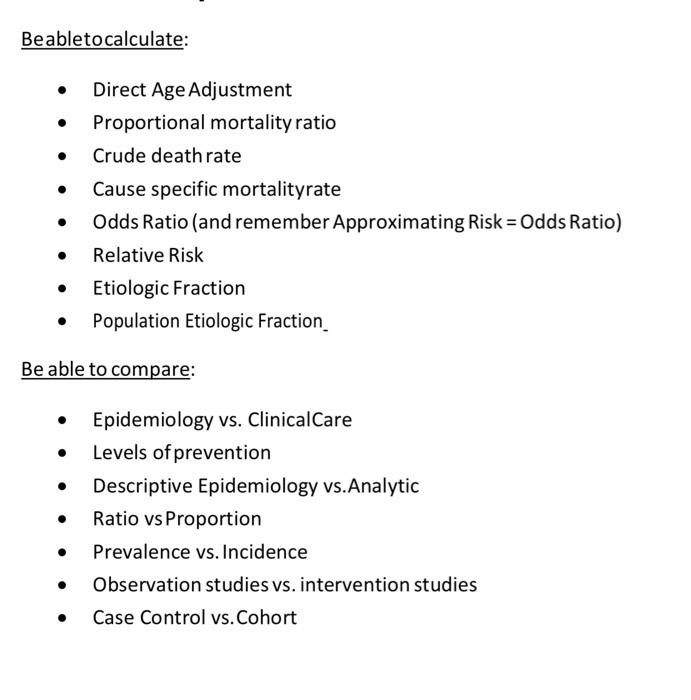



Beabletocalculate Direct Age Adjustment Chegg Com




The Difference Between Relative Risk And Odds Ratios




The Odds Ratio Calculation Usage And Interpretation Biochemia Medica
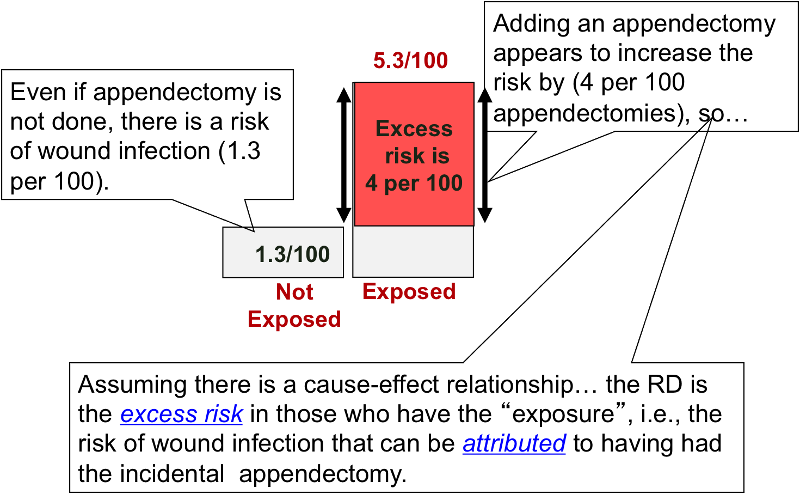



Risk Differences And Rate Differences




Controversy And Debate Questionable Utility Of The Relative Risk In Clinical Research Paper 1 A Call For Change To Practice Journal Of Clinical Epidemiology
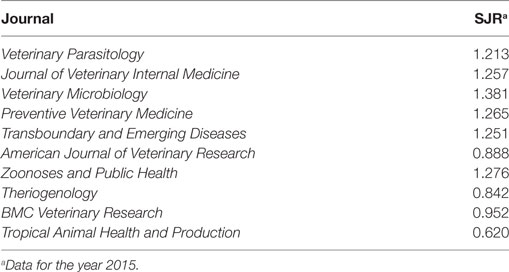



Frontiers Odds Ratio Or Prevalence Ratio An Overview Of Reported Statistical Methods And Appropriateness Of Interpretations In Cross Sectional Studies With Dichotomous Outcomes In Veterinary Medicine




Pdf When To Use The Odds Ratio Or The Relative Risk




Odds Ratios And Risk Ratios Youtube



Img006 Gif




Relative Risk Rr Versus Odds Basics In Epidemiology Facebook




Relative And Absolute Risk Osmosis




Moving Beyond Odds Ratios Estimating And Presenting Absolute Risk Differences And Risk Ratios Ashley H Schempf Phd Mch Epidemiology Training Course Ppt Download




Definition And Calculation Of Odds Ratio Relative Risk Stomp On Step1




Definition And Calculation Of Odds Ratio Relative Risk Stomp On Step1




1 The Odds Ratio Relative Odds In A Case Control Study We Do Not Know The Incidence In The Exposed Population Or The Incidence In The Nonexposed Population Ppt Download
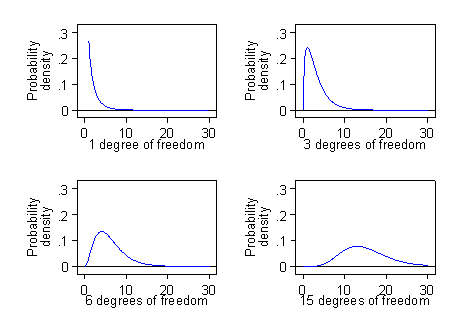



Proportions Chi Squared Tests And Odds Ratios




Assessment Of Multiplicative Interaction Using Risk Ratios And Odds Ratios Download Scientific Diagram



Definition And Calculation Of Odds Ratio Relative Risk Stomp On Step1



2




How To Calculate Relative Risk 3 Steps With Pictures Wikihow



Q Tbn And9gct4gay24i3uv90ckcbdimifr Ui3sfnfpqfzqtw4mrq21chnnb2c2zt Usqp Cau




Pdf Instrumental Variable Estimation Of Causal Risk Ratios And Causal Odds Ratios In Mendelian Randomization Analyses




Chapter 6 Choosing Effect Measures And Computing Estimates Of Effect Cochrane Training




Madhu Pai Md Phd Incidence Prevalence Odds Risk Rate Relative Risk Excess Risk Risk Reduction Hazard Confused When I Was A Phd Student Ucberkeleysph I Worked On A Handout



2




Measures Of Effect Relative Risks Odds Ratios Risk Difference And Number Needed To Treat Sciencedirect




Adjusted Odds Ratios In Validation Studies For Risk Of All Non Hodgkin Download Table




Pdf Measures Of Effect Relative Risks Odds Ratios Risk Difference And Number Needed To Treat




Graph Tip How Can I Plot An Odds Ratio Plot Also Known As A Forest Plot Or A Meta Analysis Plot Faq 809 Graphpad




What Is An Odds Ratio And How Do I Interpret It Critical Appraisal




Relative Risk Odds Ratios Youtube
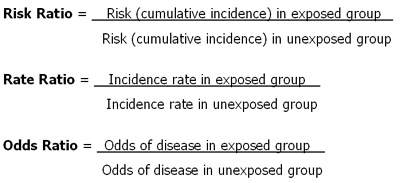



Measures Of Disease Frequency And Disease Burden Health Knowledge




Pdf Real World Occupational Epidemiology Part 1 Odds Ratios Relative Risk And Asbestosis




How To Calculate Odds Ratio And Relative Risk In Excel Statology
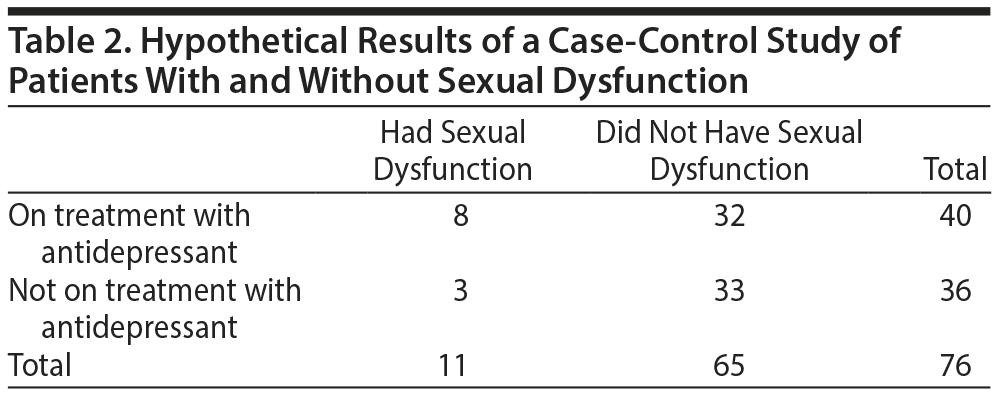



Understanding Relative Risk Odds Ratio And Related Terms As Simple As It Can Get Psychiatrist Com
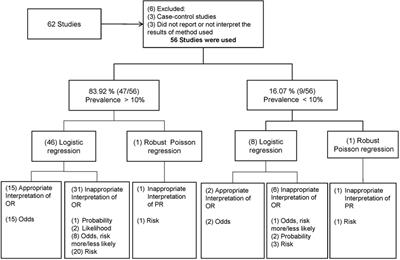



Frontiers Odds Ratio Or Prevalence Ratio An Overview Of Reported Statistical Methods And Appropriateness Of Interpretations In Cross Sectional Studies With Dichotomous Outcomes In Veterinary Medicine




Epidemiology Lecture 6 Controls Lecture 6 Estimating Risk And Potential For Prevention And Review Studocu
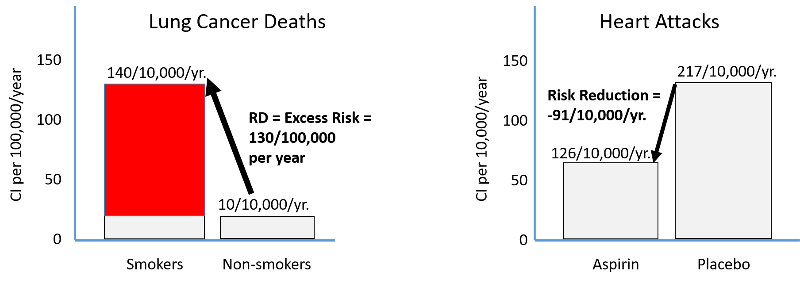



Risk Ratio And Risk Difference




Frontiers Odds Ratio Or Prevalence Ratio An Overview Of Reported Statistical Methods And Appropriateness Of Interpretations In Cross Sectional Studies With Dichotomous Outcomes In Veterinary Medicine




When Can Odds Ratios Mislead The Bmj




Numerators Denominators And Populations At Risk Health Knowledge




Odds Ratio Wikipedia




Definition And Calculation Of Odds Ratio Relative Risk Stomp On Step1
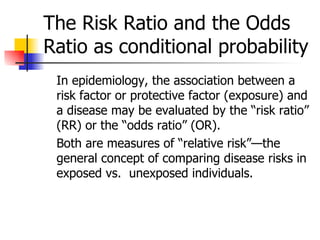



Lecture3




Odds Ratio With 95 Confidence Interval For Each Risk Factor Associated Download Scientific Diagram



Q Tbn And9gcstvjftk2mkm2pba8caaq0kh4oh733zokwp43orqbbeppfdi70rcfkh Usqp Cau
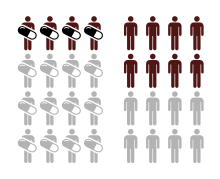



Relative Risk Wikipedia




Pdf Odds Ratio Or Prevalence Ratio An Overview Of Reported Statistical Methods And Appropriateness Of Interpretations In Cross Sectional Studies With Dichotomous Outcomes In Veterinary Medicine
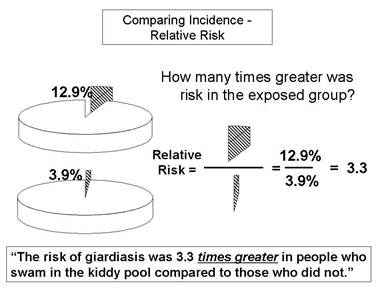



Relative Risk And Absolute Risk Definition And Examples Statistics How To




Assessment Of Multiplicative Interaction Using Risk Ratios And Odds Ratios Download Scientific Diagram




1 The Odds Ratio Relative Odds In A Case Control Study We Do Not Know The Incidence In The Exposed Population Or The Incidence In The Nonexposed Population Ppt Download
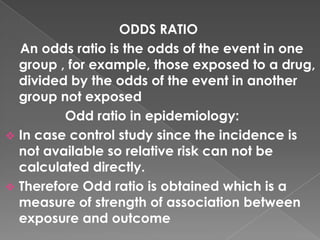



Odds Ratio
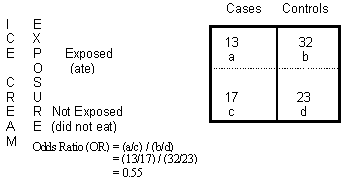



Odds Ratio Calculation And Interpretation Statistics How To



2




Controversy And Debate Questionable Utility Of The Relative Risk In Clinical Research Paper 1 A Call For Change To Practice Sciencedirect




Symptom Prevalence Duration And Risk Of Hospital Admission In Individuals Infected With Sars Cov 2 During Periods Of Omicron And Delta Variant Dominance A Prospective Observational Study From The Zoe Covid Study The




Measures Of Risk In Epidemiology Made Easy Youtube
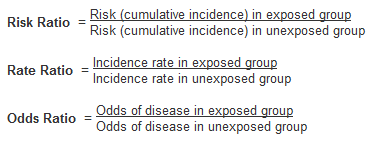



Numerators Denominators And Populations At Risk Health Knowledge



Q Tbn And9gcqxngysa26cxfmvxyhsfx7dcag9cllmm0xqr5nlbmujgf6lkarthl A Usqp Cau




The Odds Ratio Calculation Usage And Interpretation Biochemia Medica



0 件のコメント:
コメントを投稿